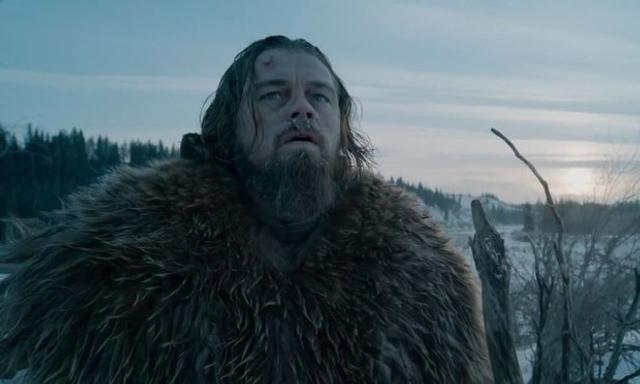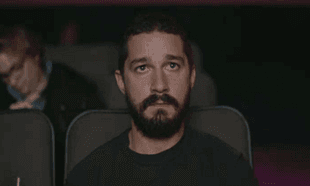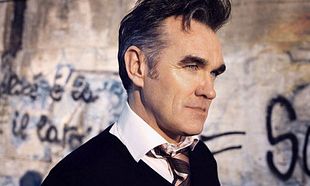She's still only 32, but Dubliner Jill Beecher has already amassed an incredible CV in the art departments and as a production designer on some of the biggest TV shows and movies of the last few years - including Game of Thrones, The Revenant and Spotlight, as well as working with iconic directors like David Lynch.
We talked to her about how she got her start in the industry, the importance of surrounding yourself with the right people, and how some good ol' fashioned hard work really does pay off.
Where did your creative streak first blossom?
I was encouraged at a very early age to be creative. My mother used to cover the kitchen in newspapers and allow us free reign! My sister and I, taking full advantage of this opportunity, would paint, draw, sculpt, play musical instruments and watch films together.
How did you go about turning that passion for film and art into a career?
I specialised in photography and darkroom techniques in college, which led to me taking photographic stills on a music video. It was there that being a part of the film industry became a viable option. I studied in a lot of different areas including graphic design, CAD, cinematography, architectural planning and illustration.
You now work as a production designer. Can you explain what that role - or the Art Department of a film or TV show in general - is responsible for, for people who aren't familiar with the term?
The production designer is responsible for creating the look of the world in which the film takes place; from the sets, to locations, to the look of the set dressing, to the props, to the final design. This ensures that every film has its own individual visual style, which is essential to the storytelling of the characters, and the plot development of each project. The director, cinematographer and production designer combine to create a visual structure for the film.

What does your day-to-day role on set generally involve as a Production Designer?
It really, really depends! It can be anything from drawing concept illustrations and storyboards, to location scouting and set-building, to prop-making and creating graphics!
As an outsider, the film world seems surreal. Was there ever a moment that you were on set or in a certain situation and thought 'I've made it!'?
The film world can be daunting in that you have to work alongside highly successful and influential people. I have met some really interesting and reputable people, but I find myself more in awe of the techies, artists and screenwriters – the level of talent, creativity and humility is something I aspire to. A notion of ‘you’re only as good as your last film’ is something than is repeated consistently amongst them.
You've worked with David Lynch in the recent past. How did that opportunity come about?
In film, the work hours are long, so word of mouth is the best reference. So I was incredibly lucky when I left college to get the opportunity of an internship on 'The Tudors', through which I gained experience and valuable contacts. Through this, I got the opportunity to work on 'Game of Thrones', which in turn led to me working on a documentary about David Lynch.

As well as 'Game of Thrones', you've also worked on two major global films from the past year, 'The Revenant' and 'Spotlight', – they're all very different, both stylistically and thematically. What's your favourite type of show/film to work on?
In every film, there is a vast art department team which the audience might be unaware of. In certain films it’s crucial for the production design to be invisible - but for me, it's more interesting to work within a highly styled time period, or simply with a director that understands the value of manipulating the audience's perception through visuals!
Are you noticing any particular trends in film or TV these days?
Franchise fare and sequels are still dominating the film market, but there is also plenty of interesting work in independent production companies – Netflix, in particular. I feel the realism present in recent productions is giving way to a more experimental and creative forms.
You're an extremely busy woman, but what's your biggest motivating force?
I think film is an incredibly powerful tool. Storytelling, whether it's through music, film or reading, is a way for people to identify with one another. Whether it's a documentary exploring a subject you weren't aware of before or a comedy, it's vitally important for the team of filmmakers to believe in what they are doing or it translates onto the screen. Also, you need to find a script or a team of people you care about to work 12 hours a day for months on end!
.jpg)
Is there one person that you've always looked to for inspiration throughout your career?
I discovered a photographer called Olivero Toscani when I was 18, he is definitely one of the people that made me realise how influential art and film could be. His work can be quite political, but there's an authenticity to his entire portfolio that makes a lasting impact on the viewer.
What would be your dream project to work on?
I'm truly blown away with what the virtual reality filmmakers are achieving and creating at the moment. The logistics of creating 360 degree sets would be a challenge but it is an incredible step into the future.
What about people? If you could work with any director, who would it be and why?
I would love to work with Mike Leigh for his theatrical style, Ridley Scott for his futurism, Guillermo Del Toro for his fantasy style… the list is endless!
Irish film is booming at the moment - what's the best advice that you could give to someone starting out in the industry today?
Surrounding yourself with the right people is one of the most crucial but also one of the most difficult things to do. Accept that it will take a few years to become established - so combine assisting on bigger shoots with your own smaller projects and start building a team around you.
**********
Brought to you by Hop House 13. Drink sensibly.
.png)








































































